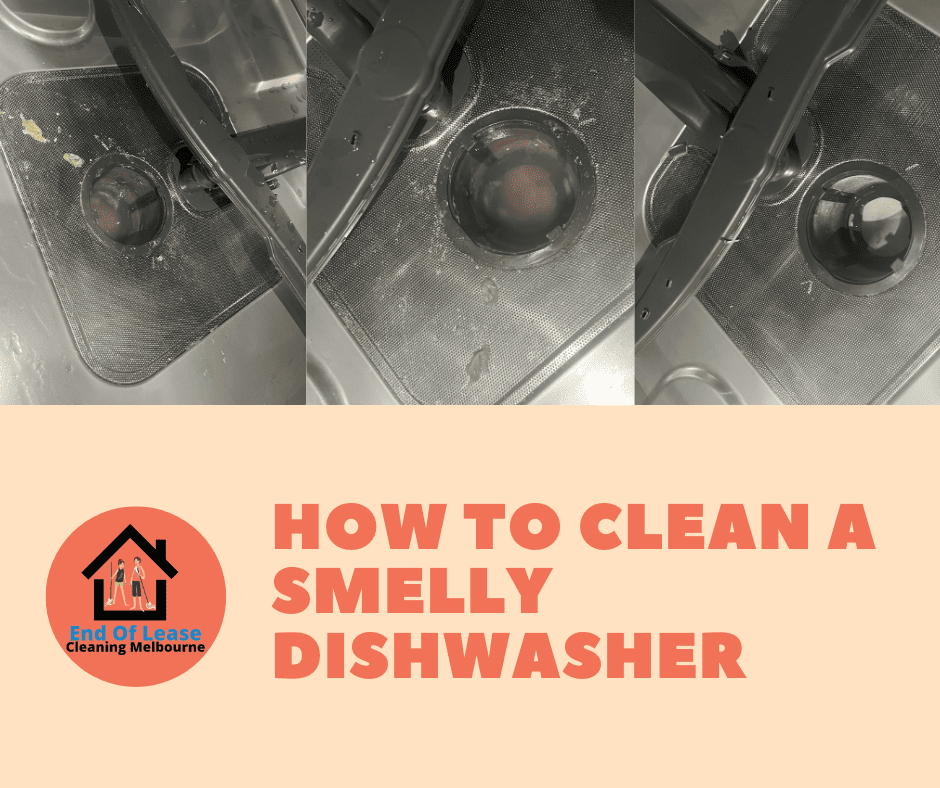Most people use a dishwasher to reduce the burden of manual dishwashing. In this article, we focus on how to use a dishwasher, how to clean a smelly dishwasher, and how to prevent odours to keep your dishes clean and hygienic.
Benefits of Using a Dishwasher
1. Time-Saving
Stack your dishes, glasses, and cutlery in the dishwasher in just a minute and let the machine do the thorough cleaning. It’s a quick and easy solution for the busy lives of modern households.
2. Economical
Modern dishwashers use advanced technology that consumes less water and energy per cycle. They clean with hot water sprays and sanitising methods that remove dirt, bacteria, and grime more effectively and hygienically.
3. Gentle on Your Hands
Dishwashing liquids often contain strong chemicals that can dry out your skin, making your hands rough and requiring more frequent manicures. A dishwasher does the job for you, helping your hands stay soft and well-maintained.
4. Prevents Accidents
Breakage often happens while washing slippery dishes in soapy water or when drying them in cramped spaces. Dishwashers have large baskets that allow dishes to dry safely and automatically after each cycle, reducing the risk of damage.
5. Encourages Shared Responsibility
You can easily teach school-aged children and teens to load and unload the dishwasher. It’s a great way to share household duties and spend time together after meals.
6. No Scrubbing Needed
With the latest dishwashing tablets and machines, even tough stains can be removed without the need for pre-rinsing or scrubbing. Modern technology ensures efficient, hassle-free cleaning.
Why Do You Need to Clean a Smelly Dishwasher?
1. Dirty Dishes with Food Particles
Leftover food scraps may remain after a wash cycle, especially around the filter or in hard-to-reach corners. These food particles can stick to the surfaces and, if not cleaned, lead to unpleasant odours.
2. Mold and Soap Scum Buildup
Harsh chemicals from dishwashing tablets combined with hard water can cause soap scum to build up. Moisture trapped inside the dishwasher, especially if the door is kept closed after a cycle, prevents it from drying out properly. This creates the perfect environment for mould to develop, particularly around filters, rubber seals, and in lower corners. Mould is harmful to health and produces a foul smell.
3. Grime, Dirt, and Grease
Oily pans, dirty baking trays, and greasy rangehood filters can leave behind grime and grease. These residues may settle at the bottom of the dishwasher, resulting in dishes that come out still dirty or greasy.
4. Bad Odours
Dishwashers can start to smell due to a buildup of dirt, grime, mould, or the use of improper cleaning products. Keeping the door closed after the cycle finishes can trap moisture and create a musty odour. That’s why you need to clean a smelly dishwasher.
5. Clogged Pipes or Drains
Food debris can clog the dishwasher’s drain or outlet pipe. This blockage can restrict water flow, reduce cleaning efficiency, and in severe cases, damage the machine. Regular cleaning of the dishwasher and its water hose helps maintain hygiene and prevents plumbing issues.
6. Extending the Lifespan
A clean dishwasher delivers better performance and extends the appliance’s life. Routine cleaning helps prevent rust, mould, and potential internal damage, ensuring your dishwasher remains efficient and hygienic.
Step-by-step guide to clean a smelly dishwasher:
1. Empty the Dishwasher:
Start with an empty dishwasher. Remove all utensils from outside the dishwasher and clean it with an empty dishwasher. Run a short hot cycle to clean from the inside.
2. Clean the Filter and remove all the leftover water:
Clean the dishwasher filter (located at the bottom), twist the take-out so the filter can be cleaned adequately, and if any hair or grease is present. Take hot water and put a filter for 10-15 minutes to remove all bacteria or grease. Scrub gently with a soft brush with multipurpose cleaner, toothpaste, or vinegar.
You can rinse and reinstall the filter.
3. Clean the Drain Area:
Cleaning of the drain area to remove any hair, leftover food, particles, or any plastic. Pour water to test whether water is going down the drain or not. If not, clean the inside drain.
4. Scrub spray arm holes
Scrub the spray arm holes and ensure they don’t collect gunk. Remove spray arms if possible.
Use a small brush to clean out any debris in the holes. Rinse under warm water.
5. Wipe down the doors and trays
The rubber around doors does have mould or grime. You can clean it with microfibre clothes and multipurpose cleaner. You can also use vinegar or baking soda to clean it if you don’t have any specific chemicals.
Clean around the door and detergent dispenser.
6. Run a complete eco cycle with dishwashing tablet + vinegar and baking soda
After cleaning the dishwasher, run the cycle using a table, baking soda, and vinegar. This will allow the machine to remove all the smell and make it brand new. Vinegar will shine the glassware like new and prevent scratches.
If possible, use hot water to clean the final eco cycle. This will break up any leftover grease, dirt, or sticky food particles.
Tips for the future to prevent bad smells:
- Scrap food: Remove any food from the dishes and put them into the dishwasher.
- Clean the filter: Aim to clean the filter on days when you do not use the dishwasher. Cleaning the filter will prolong the dishwasher’s life. Use dishwashing liquid and scrub it with the sponge, then run it through clean tap water to clean it properly.
- Vinegar: To clean a smelly dishwasher thoroughly, run it with vinegar or baking soda at least once a week.
- Clean Drain: Remove any leftover water inside the dishwasher; this will prevent bad smells and other particles from accumulating in the drain or within the dishwasher.
- Air Circulation: Keep your dishwasher door open after each cycle to let it dry completely from the inside.
- Use a hot water cycle: If you’re running a dishwasher, we suggest using hot water to remove any bacteria or grease. Hot air will sanitise the dishes after each wash.
- Wipe the Surface: After each use, try wiping down the inner dishwasher walls with a clean and dry microfiber cloth or paper towel. This habit will prevent mould build-up and odour.
Why Tenants Need to Clean a Smelly Dishwasher at the End of a Lease
Tenants are responsible for cleaning the entire property at the end of their lease as part of their rental bond agreement. While many tenants run an empty dishwasher with a dishwashing tablet, this alone is often not enough to clean it thoroughly. Food particles and grime can remain stuck at the bottom or in hidden areas of the dishwasher. Although some rental agents may overlook small details like dishwasher cleanliness, others may inspect it closely and use it as a reason to deduct money from your bond.
Tips to Clean Your Dishwasher Before Moving Out:
Remove all crockery and utensils: Don’t leave any items inside the dishwasher.
Run a full cleaning cycle: Use a dishwasher tablet and add a cup of white vinegar if possible for better results.
Wipe it thoroughly: Clean the inside walls, door edges, and exterior surface of the dishwasher.
Hiring end of- lease cleaning professionals?
Make sure the dishwasher is included in their checklist so it receives a proper deep clean by professionals.




